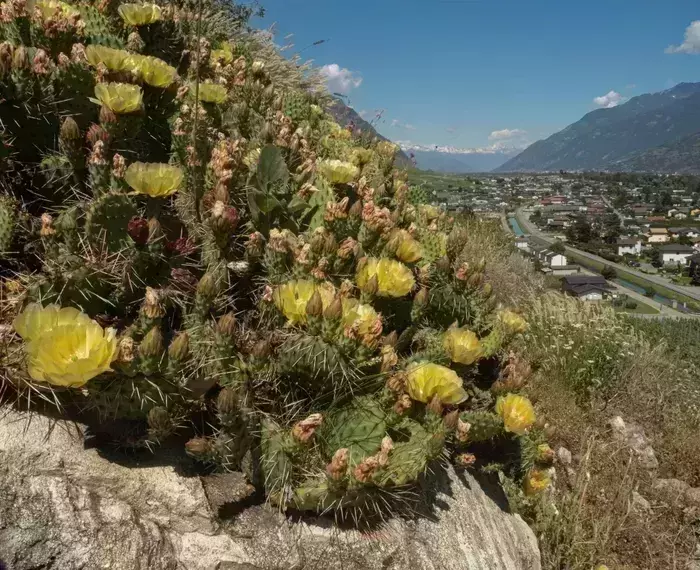
Cactus takes over Switzerland mountains in the absence of snow, experts concerned
text_fieldsBern: Global warming is affecting the mountains in Switzerland and people are noticing increased growth of cacti in the region because snow is declining.
The warmer climate of the Alps is extending the growing season and retreating snow is fostering the growth of cacti plants.
Snow is becoming less common in the lower elevations of the Alps. Data suggests that the amount of snow days in the country below 800 metres of elevation has declined by 50% since 1970. The average temperature is 2.4 degrees celsius warmer than the average between 1871-1900. Peter Oliver Baumgartner, a retired geology professor, studying the issue said that the curves of climate change in Switzerland are almost as steep as for the Arctic.
Yann Triponez, a biologist working in Valais said their estimate shows that the cacti can occupy one-third of the available surface in some regions. He added that Opuntia was imported from North America in the late 18th century.
Valais is one of the biodiversity hotspots in Switzerland and has about 2,200 species of plants while the entire country has only 3,000 species.
Authorities said the cactus is encroaching on natural reserves and posing a threat to biodiversity. They are prickly pears, a species of the cactus genus Opuntia, reported The Guardian. In the hills of Sion, Valais, opuntia plants have become common and currently account for 20-30% of the low vegetation cover in these slopes. Alpine areas including Ticino and Grisons in Switzerland as well as Italy's Aosta Valley and Valtellina are reporting similar growth of cacti.
Authorities are concerned about the cacti's spread to protected areas and have started an awareness campaign to warn residents against planting the cacti.
The municipality of Fully in the Rhone valley in late 2022 said in a press release that cacti of the Opuntia genus are not welcome because it is an invasive and non-native plant. "A lover of dry and hot climates, this invasive and non-native plant is not welcome in the perimeter of prairies and dry pastures of national importance."





